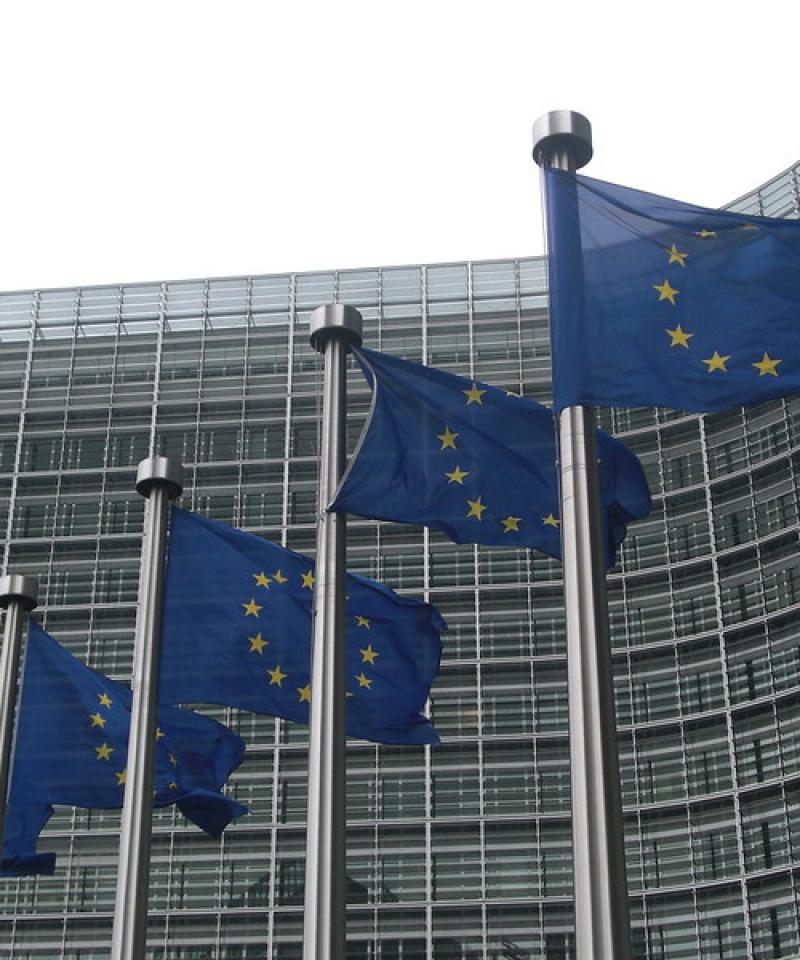Eritrean activists sue EU for funding forced labour in Eritrea

Two court cases, one in the Netherlands, the other in the UK, have been launched to contest the European Union (EU) aid for Eritrea which finances a development project employing conscripts from the Eritrean National Service. Eritrea is notorious with its indefinite national service as part of which men and women are forced to spend a lifetime as conscripts, forced to be part of the military or work in mines, farms and factories with no right to leave and essentially no pay.
Human Rights for Eritreans' case in the Netherlands
In the Netherlands, the Amsterdam-based Human Rights for Eritreans (FHRE) sued the EU on 13th May, demanding it to halt 80 million euros in aid to Eritrea, saying the money is financing a major road renovation project that uses forced labour. The lawsuit, filed to the Amsterdam district court, accuses the EU not only for financing a project that uses forced labor but also for arranging the money through a deliberately opaque process and for failing to provide meaningful oversight.
The European Union Emergency Trust Fund for Africa, the subject of the lawsuit, was created in 2015 to pay for projects aiming to curb migration from Africa to Europe by creating jobs at home.
It is technically a separate fund from the main EU budget which makes it less transparent and difficult to hold to account. As reported by the New York Times, many rights advocates, migration and legal experts and lawmakers, criticised the fund’s operation, saying the opacity is deliberate.
Eritrea Focus’ legal challenge in the UK
In the UK, Eritrea Focus has launched a legal challenge against the UK Government's financial contribution to the EU’s aid to Eritrea.
In their press release on 13th May, Duncan Lewis, the law firm representing Eritrea Focus, said “The use of National Service conscripts in Eritrea has been described as “enslavement” and a “crime against humanity” by a UN Commission of Inquiry. The European Parliament denounced it as “forced labour” and “a form of slavery”. Despite this, EU funding for the Road Rehabilitation Project, with UK Government contributions, has continued unabated and indeed it has been increased.”
Toufique Hossain and Isabella Kirwan, two lawyers from the firm, said “according to UK law, the Eritrean National Service constitutes forced labour; a form of modern slavery, and the conditions conscripts are subjected to amounts to inhuman and degrading treatment. It is against UK domestic law, European law and international law for the UK Government to be supporting the use of forced labour on the road-building project in Eritrea. The UK Government support must therefore cease forthwith.”
EU Parliament resolution on the EU’s aid to Eritrea
Meanwhile, on 14th May, the EU Parliament adopted a resolution, calling on the European Commission, the European Union’s executive arm who runs the fund,
- to include clear and transparent human rights clauses in the contribution agreements it concludes with implementing partners … in order to avoid situations whereby the Union could indirectly finance projects that violate human rights; points in that regard to the ‘Reconnecting Eritrea and Ethiopia through rehabilitation of the main arterial roads in Eritrea’ project, funded by the EUTF and managed by the United Nations Office for Project Services, which finances Eritrean national construction companies using forced labour via national service;
- … to ensure that no forced labour and conditions of slavery are used at the working sites of Union co-funded projects, in accordance with international and Union legal frameworks; recommends that the Commission implement a transparent and rigid monitoring system for Union co-funded projects, which should include an anonymous complaints procedure and follow-up...
To see the resolution, click here.
Source: The New York Times, Eritreans Sue E.U. Over Use of Forced Labor Back Home, 13 May 2020; Reuters, Eritrean activists sue EU for funding roads built with 'forced labour', 13 May 2020; Eritrea Hub, European aid for Eritrea involving “slave labour” challenged in two courts, 13 May 2020.
Add new comment